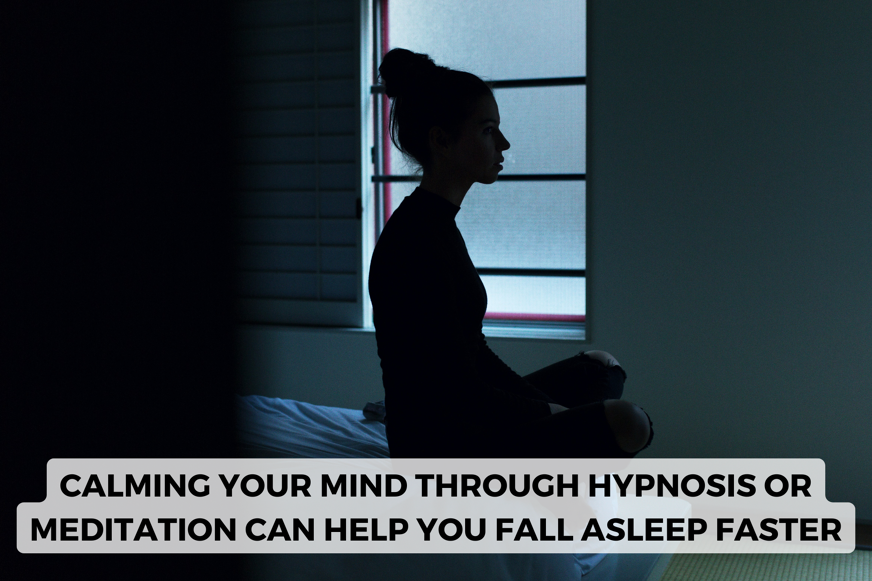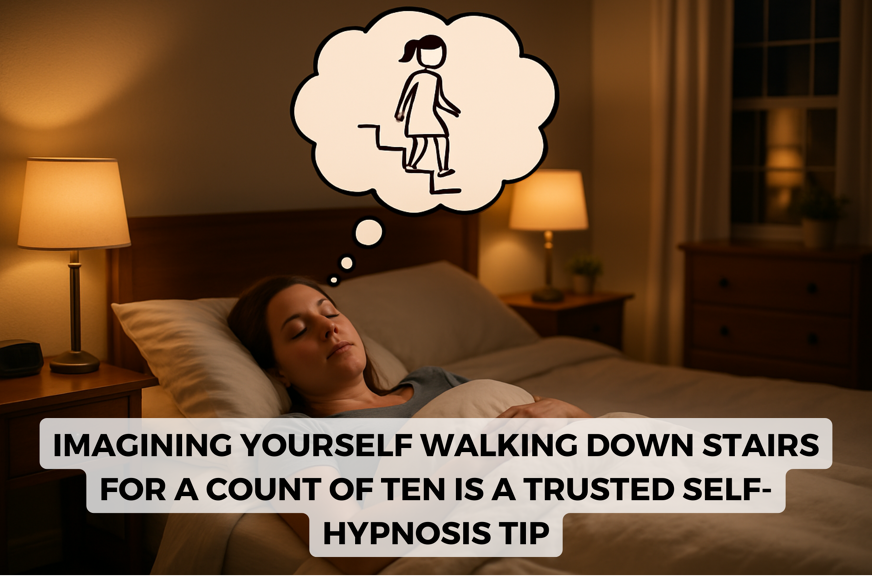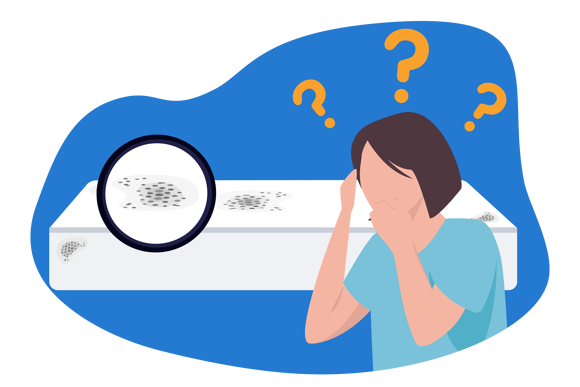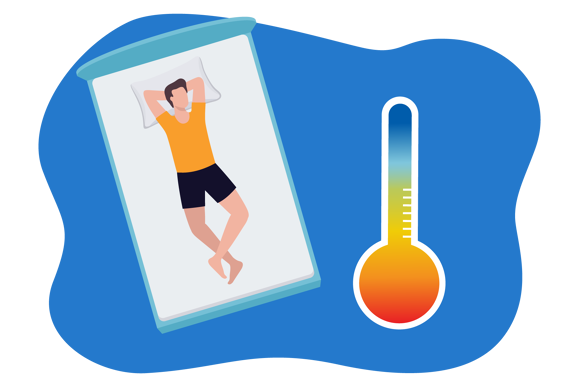What is sleep hypnosis?
Sleep hypnosis is a technique that uses targeted suggestions and guided relaxation to gently prepare your mind and body for sleep.
Contrary to what many might think, hypnosis isn't about losing control [1] – it's more about reaching a deep state of calm, much like that lovely feeling just before you drift off. 😴
In the UK, this approach is becoming increasingly popular, particularly as a natural alternative to sleeping pills for sleep disorders like insomnia or nighttime restlessness.
During a hypnosis session – whether with a professional or via an audio recording – you consciously focus on calm breathing and soothing imagery.

And if you're wondering whether or not sleep hypnosis is safe, there's no need to worry!
According to sleep experts [2], sleep hypnosis is considered a safe and non-invasive method, as long as it's applied correctly.
And it's not possible to ever got "stuck in hypnosis" - you can always wake up whenever you choose to.
The benefits of sleep hypnosis
Why should you consider giving hypnosis for sleep a try?
Turns out, sleep hypnosis doesn't just help you nod off faster – it can actually positively transform your entire evening routine.
Here's how it can benefit your sleep:
- Reduces insomnia: Breaks the cycle of racing thoughts during restless nights.
- Eases anxiety: Calms the mind, especially when nighttime worries creep in.
- Promotes deep sleep: More restorative sleep phases for a refreshed start to the morning.
- Natural & accessible: No need for medication – just your mind and simple techniques.
- Boosts your well-being: Better sleep equals greater mental resilience.
Hypnosis can actually be just as effective for falling asleep as meditation for sleep. 🧘
Try these hypnosis techniques for better sleep
Here are three straightforward techniques you can test out tonight. 👇
1. Self-hypnosis for sleep 🌀
Self-hypnosis is ideal for those who prefer to be independent.
Here's how to do it:
- Lie down in a quiet spot.
- Take five deep breaths in and out, counting slowly to four with each inhale and exhale.
- Imagine yourself walking down a staircase – from 10 to 1 - feeling more relaxed with each step.
- Repeat internally: "I am calm and ready to sleep."
You should feel yourself calm down and drift off in no time.

2. Guided hypnosis 🎧
If you prefer a bit of support, guided hypnosis sessions, available as audio or video, could do the trick.
There are tons of options on YouTube or within sleep meditation apps like Headspace [3], Calm [4], or Insight Timer [5].
Try this popular one for deep sleep:
Simply close your eyes, follow the voice, and listen to the guidance given.
These are perfect for beginners.
3. Sleep visualisation 🌴
Close your eyes and picture a peaceful place – perhaps a beach in Cornwall or a tranquil forest.
Make it vivid: Feel the breeze, hear the waves or rustling leaves, sense the sand or soft earth.
This technique blends meditation with hypnosis, and helps you develop a soothing bedtime routine.
You may want to spritz some essential oils onto your bedding so you can utilise the powers of aromatherapy for sleep as well.
Does hypnosis for insomnia work?
If you're struggling with chronic insomnia, hypnosis could be a real game-changer.
It helps re-programme mental patterns such as nighttime worrying, overthinking, or stress, which can keep you awake at night.
But does hypnosis actually work for sleep problems? 🧐
Yes - studies [6] indicate that sleep hypnosis can shorten sleep onset latency and improve sleep duration.
Final thoughts on sleep hypnosis
Sleep hypnosis is a powerful tool for better sleep, tackling insomnia, and finding more peace at night. 🌙
Try out our techniques and discover which method works best for you.
If you prefer professional support or have more deeply-rooted issues that need addressing, it's worth booking an online or in-person session with a certified hypnotherapist.












Alternatively, message us directly via the Contact Us page.